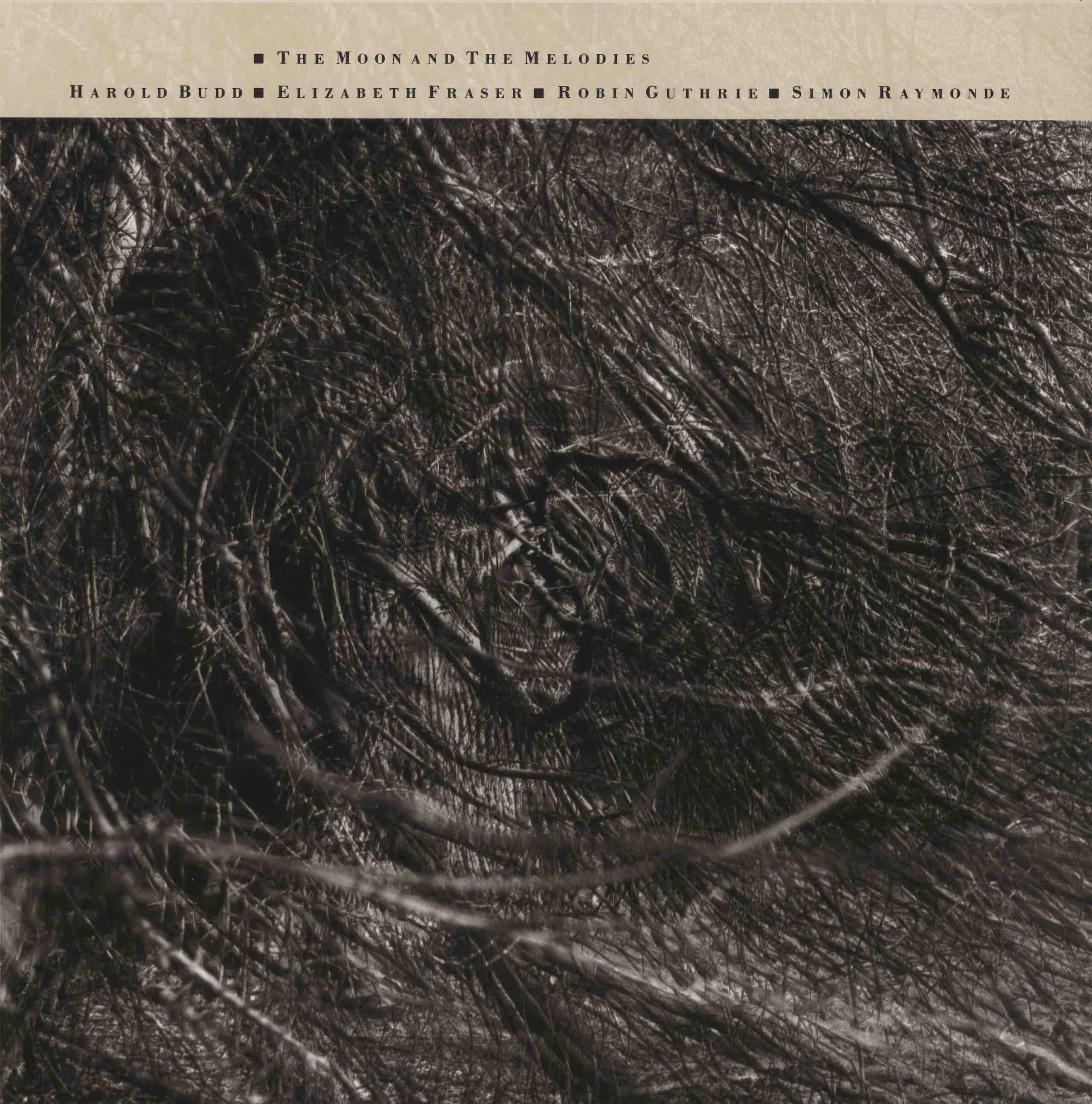Cocteau Twins & Harold Budd
The Moon and the Melodies [Reissue]
4AD
Although Scottish dream-pop trio Cocteau Twins and the late ambient American composer Harold Budd initially assembled in the mid-’80s to collaborate on an ultimately nixed documentary project, the group experiment became something else entirely due to the musicians’ undeniable chemistry. The result was 1986’s The Moon and the Melodies, an otherworldly and enigmatic avant-garde work that was more ethereal than any other Cocteau Twins project (and brighter than the band’s dark and atmospheric Victorialand from that same year), transformed as it was by Budd’s signature lush sustain and reverb. For this new reissue, the band’s Robin Guthrie retrieved the original Moon and the Melodies tapes and gave them a new life, remastering them for CD and vinyl.
Like all Cocteau Twins music, The Moon and the Melodies’s lyrics are quite ambiguous—either projections from the listener or a mondegreen never to be solved. Yet Elizabeth Fraser projects both emotionally and viscerally, even if you can’t comprehend her. This abstract approach creates a chasm between the rational and irrational, forcing the listener to be more present as we explore the music internally rather than getting validation from its creators. It’s an abstract auditory art piece not meant to be solved, but instead experienced. Brian Eno called Budd an “abstract painter trapped in the body of a musician” in an LA Times piece published upon the composer’s passing in 2020 due to COVID-19, so it makes sense that Budd and Cocteau Twins hit it off so well.
The Moon and the Melodies begins with “Sea, Swallow Me,” which perfectly encapsulates this album's shiny Elysian world. The rhythm is slow but precise, like small waves in the ocean on a calm day. Fraser’s voice appears in between each beat, going up and down, almost as if she’s pondering something she can’t quite figure out. From there, “Memory Gongs” takes us deeper into the album’s contemplative core. Here, Budd exhibits his skills in creating soundscapes of melody soaked in reverb. “Why Do You Love Me?” further explores this ambient world, emphasizing lushly sustained chords and conveying more possibility while maintaining a nagging sense of foreboding.
Focus then jumps back to Cocteau Twins on “Eyes Are Mosaics” as the rhythm picks up and carries the album’s plot into new territory. It’s an early indication as to how The Moon and the Melodies remains perfectly balanced between both collaborators, bouncing from ambient soundscapes to Fraser’s distinct voice across its eight tracks like an Olympic gymnast galavanting effortlessly on a balance beam from one end to the other.







